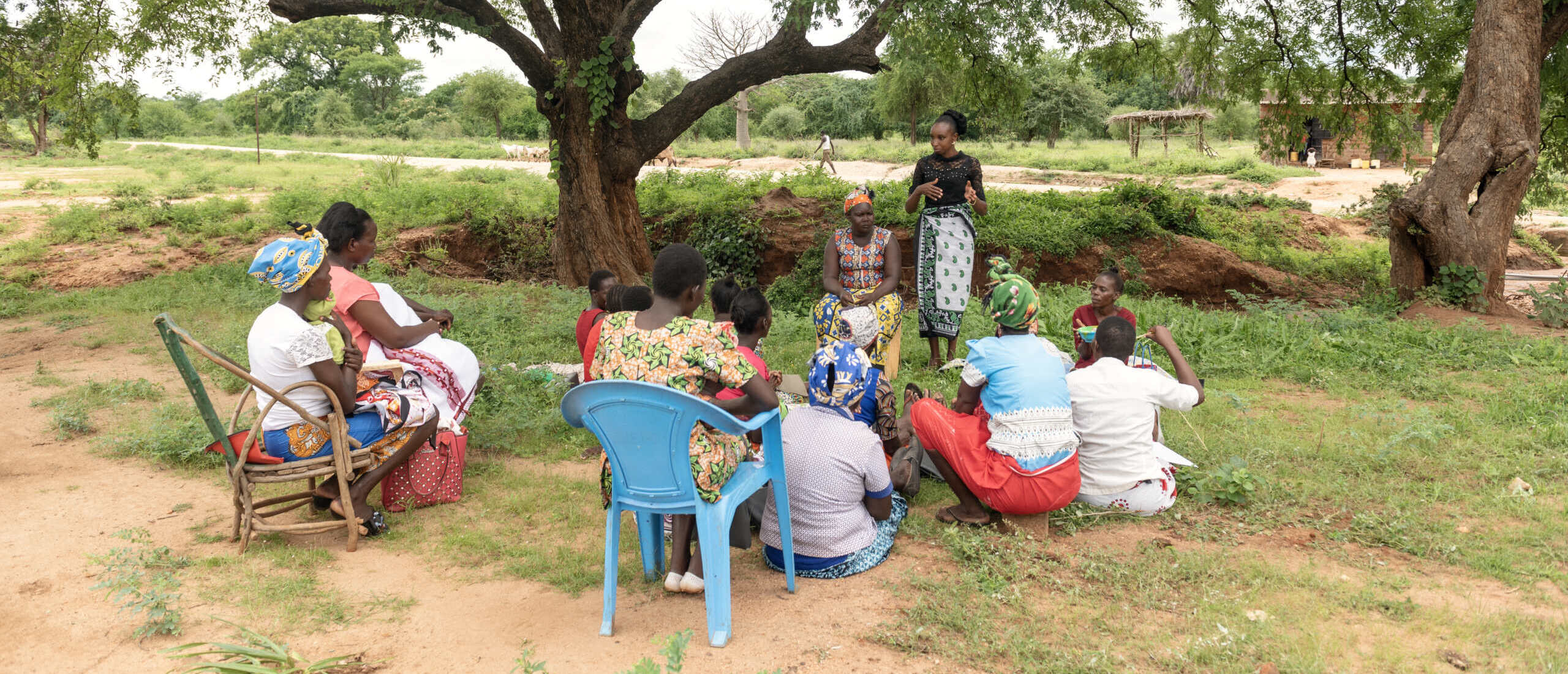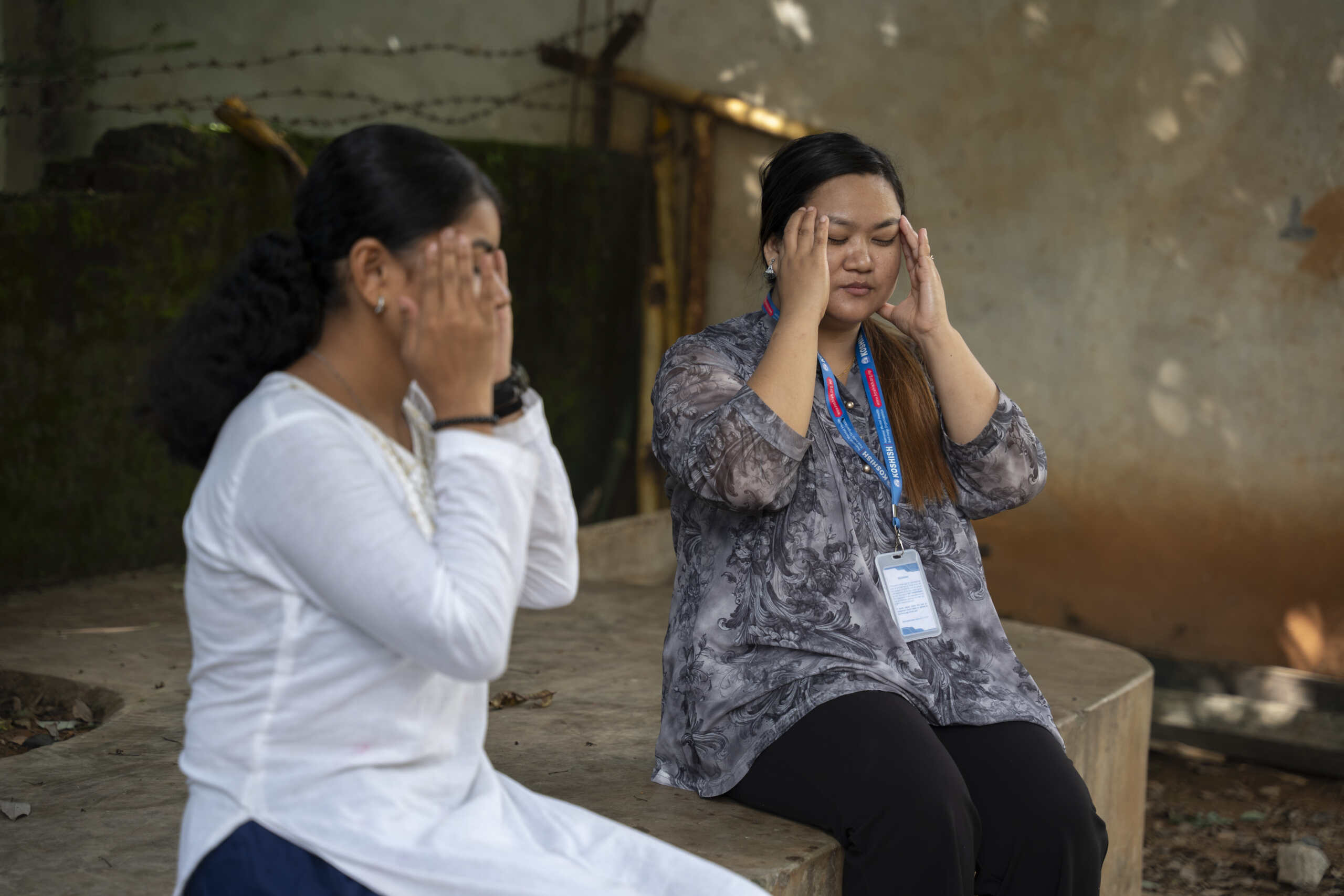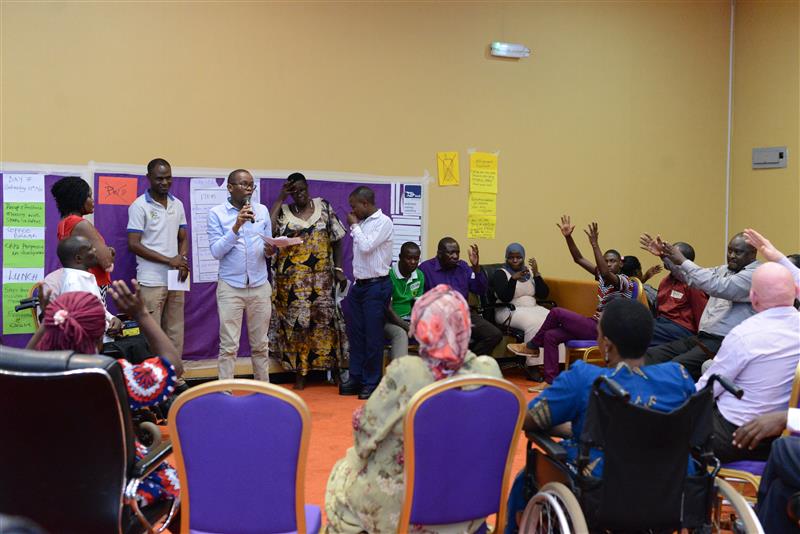CBM Global’s Power Shift Journey: Working with a Localisation Steering Group
Blog | February 15, 2023
“Localisation in the Pacific would mean – locally led solution that ‘looks Pacific feels Pacific and smells Pacific’. Led by Pacific people with the support of partners that come along side and work with us” Laisa Vereti, The Pacific Disability Forum (PDF)
This blog is one in a series documenting CBM Global’s power shift journey. A shift in power requires us to honestly reflect on the power relationships that underpin our ways of working, and to rebalance towards more equitable partnerships with local actors and organisations, including the disability movement worldwide. Our first blog outlined changes CBM Global has made to the membership and decision making processes of its board. This blog introduces our new Localisation Steering Group of representatives from Organisations of Persons with Disabilities (OPDs).
Why did we ask disability partners to join a Localisation Steering Group?
We have a long history of operating as a partner-based organisation rather than implementing directly. We recently asked our partners how we should improve, and commit to maintain transparency and accountability to them in our partnership. This is formally institutionalized through regular partner surveys and internal learning practices to reflect and respond. Wishing to deepen this approach, we co-developed the CBM Global partnership principles in consultation with local partners, conducted a listening exercise with OPDs, and are now pursuing a set of commitments to partner authentically and share power more actively with our OPD partners.
Leadership across the Federation is keen and committed to move forward, but we first and foremost needed to listen to OPDs to hear their vision of what power shift would look like for CBM Global, rather than making assumptions about what we thought it should look like. Hence, the Localisation Steering Group was established to give space to a range of OPD representatives to advise us on the direction and pace of changes needed to our structures, systems and ways of working.
“I was very happy and pleased to be part of the team invited to discuss on how CBM Global could work closely with OPDs in terms of engaging them from the start as well as being responsive to the needs of OPDs. I decided to join the team because I realized that I do have much to contribute in the processes.” Emile Vuningabo, National Union of Disability Organisations in Rwanda (NUDOR).
Who is involved in the Localisation Steering Group, and how?
The Localisation Steering Group membership needed to provide a broad diversity of voices to reflect the diversity within the disability movement worldwide. We consulted widely and approached a number of respected leaders within the disability movement in countries or regions where CBM Global works, individuals with experience of working in partnership with international NGOs. Diversity was a priority, balancing gender, age, disability and regional spread.
“The diversity in membership was for me, the very first positive indication of CBM’s intent to get the process done right and it showed in the perspectives we all brought into the group from our varying experiences. It also helped in determining consensus across different groups for some of the strategies in consideration”. Victor Ugo, Mentally Aware Nigeria Initiative (MANI)
In terms of practicalities, we were conscious that this work should not impact too negatively on members’ day jobs so, although the steering group needed to be small enough for engaged participation and exchange of ideas, it also needed to be big enough to accommodate potential absences. Members identified what time they were able to commit over a 6 month period, and the Localisation Steering Group was launched in April 2022 with meetings scheduled approximately every 4 weeks. In keeping with our Global Disability Summit commitments, all inputs were remunerated including any preparation time.
What has the Localisation Steering Group been asked to do?
The LSG was commissioned to provide insights into the practical changes CBM Global would need to make to be more locally led in its strategy, approaches and structures.
“I can envision a CBM Global composed of people who are sensitive and should have the keenness of listening and understanding, with critical thinking to analyze OPDs wishes and need to be strengthened to become effective partners and frontliners in development.” Carmen Reyes Zubiaga, WOWLEAP Inc (Women with Disabilities Leap to Social and Economic Progress), Philippines.
Many organisations and NGO networks are creating power shift tools and frameworks. With the Peace Direct framework as a really helpful starting point, we all agreed there was no need to reinvent the wheel but rather for our disability partners to help us to ground this framework in the realities of the global disability movement and what equitable partnership with CBM Global looks and feels like from their perspectives.
“It’s a realization of what OPDs longed for, for years. We actually feel more empowered to be consulted and participate in deciding our own project. We can own our project” Carmen Reyes Zubiaga
Key learning through this experience
Did it meet members’ expectations? What can we learn from these first 6 months? Members expressed their general satisfaction with the process, but we should reflect on the impact of group facilitation style on participation.
“I am satisfied with my participation and I am feeling satisfied that I have expressed my opinions about the different issues… I want to reiterate [though] that the smaller the group, the more inputs we get because everyone is relaxed and can think better.” Carmen Reyes Zubiaga
Here are 3 overarching learnings from the process:
1.Despite consulting widely on suitability of timing of meetings, it proved difficult for some members to attend.
“We don’t need to wait for more than 10 minutes [for people to join the call], because everyone is busy and should respect other people’s time.” Carmen Reyes Zubiaga
CBM Global is committed to ensuring that a) meetings are run efficiently and to time to ensure minimal timewasting for those giving their expertise and knowledge to our localisation journey and b) OPD representatives are reimbursed for time given to consultations, events and presentations.
2. Remote engagement has limitations, particularly with interrupted internet connectivity.
“Acknowledging the difficulties in getting this done, I believe a physical meeting where this process is started and concluded within a given time period would have been more engaging.” Victor Ugo
Whilst we have learnt that a huge amount can be accomplished through on-line meetings when they are well prepared, we also recognise their limitations. CBM Global will continue to explore the possibility of physical meetings for bodies such as the Localisation Steering Group when opportunities arise.
3. The diversity of views received were not always easy to reconcile or harmonise – a fair reflection of the diversity of the disability movement.
“I’m confident that the expertise represented within the group gave the best of what their experiences allowed. CBM should however be conscious of the fact that while we are individuals and facilitators of our own networks and initiatives, it’s impossible for us to be sole representatives of the perspectives of people in our pre-defined groups who don’t have the privilege we have to participate.” Victor Ugo
CBM Global recognises that a diversity of voices is vital and that many people with disabilities do not belong to organised movements or organisations. We therefore commit to continue to consult individuals as well as OPDs to ensure that we hear voices from those traditionally excluded.
What’s next? A power shift road map is being developed in 2023 guided by the inputs from the Localisation Steering Group. Future blogs will give more detail on this plan, and our continued journey in realising changes to our structures, systems and ways of working to become more locally led.
https://cbm-global.org/blog/cbm-globals-power-shift-journey-working-with-a-localisation-steering-group
Related News

What our partners told us and how it shapes our future
One of our strategic priorities as a Federation is to shift power in partnerships....

Breaking Stigma, Building Hope: Suicide Prevention in Nepal
After losing her young daughter to suicide, Maya developed a mental health condition while...

Accessibility, reasonable accommodation, and budgeting for inclusion
Budgeting for inclusion, accessibility, and reasonable accommodation must be...
